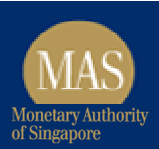Investment Strategies
Global Economy Slowing But Hard Landing Unlikely; Watch Leverage Risks - MAS

The MAS chief struck a cautious note about the global economy and Asia's own position, raising a red flag about corporate debt levels in the region and the US.
The global economy is decelerating but not at risk of a "hard landing", the Monetary Authority of Singapore's top official has said, while warning that company debt leverage has risen faster than improved earnings, raising potential dangers.
"We have had two years of robust growth, in many parts of the world above trend. It is to be expected that global growth will moderate this year towards a more sustainable rate, and this moderation has already started," Ravi Menon said, speaking at a Citibank Asia-Pacific investment conference earlier this week.
"We expect global GDP to grow by 3.5 per cent this year, only slightly slower than the 3.7 per cent estimated for 2018, and higher than the average of 3.4 per cent in the three years to 2016," the Monetary Authority of Singapore managing director continued.
Menon had been asked how vulnerable the world's economy is to slower growth in the US and China, and his assessment of the threats posed by rising protectionism between these two nations. Menon replied that the US economy "remains in good shape" and that the US is poised to growth by 2.4 per cent this year, which is above potential, and that the package of tax cuts on corporates enacted over a year ago will not lose its impact until later this year.
He added, however: "Private investment is a question mark: the recent increase in political and policy uncertainty is a dampener, but ongoing deregulation will support increased capital outlays in some sectors."
China's economy was moderating in growth terms but Menon argued that it is "likely to stabilise at a "more sustainable pace". Authorities in the county are likely to underpin growth where necessary," he continued.
"China’s economy is expected to grow by 6.2 per cent in 2019, down from 6.6 per cent last year. The growth moderation is not trivial nor is it alarming," he said.
Menon's comments come at a time when investors are wondering if the global economy has yet sufficiently changed since the economic storms of 2008 to absorb a return to more "normal" levels of interest rates after a decade of ultra-low levels.
"What is worrying about 2019 is not headline growth rates. What is worrying is that downside risks have increased and policy buffers are limited in the advanced economies," Menon said. He cited trade tensions, policy uncertainty about Brexit and the weak state of the Italian economy (and a member of the euro-zone) as risks to watch. European countries, for example, haven't many tools left in the box to boost growth where needed, he said.
Leverage worries
Menon concluded by saying that "pockets of financial
vulnerability exist in many parts of world", and that the
fundamental problem is leverage. "The world as a whole is more
indebted today than it was prior to the global financial crisis,"
he said. "In the US, non-financial corporate debt has risen
sharply, spurred by years of very low interest rates. The
underwriting of some of this debt has been quite weak," he said.
"If the business environment turns for the worse and cash flows dry up, corporate debt defaults could snowball. This is not likely to be a systemic problem, but it could create disruptions. Leverage ratios have also risen sharply in several Asian economies – corporate leverage in some, household leverage in others, Menon continued.
"Corporate earnings have not gone up in tandem with the rise in leverage, signalling weaker repayment ability under interest rate stress. Households, which have taken on more leverage on the back of low interest rates, might be more vulnerable to shocks in housing prices," he added.